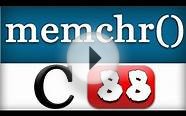
Semantics and syntax relationship
It is not easy to describe the relation between syntax and semantics, but it is probably easy to say why that is not easy: there are different perspectives about syntax and semantics, so the relation depends on what you understand by form and meaning, structure and content. If you look at the history of Chomskyan linguistics, you will find the chapter in which a group of people were working on deep structures so much that they actually were doing semantics and not syntax. Moreover, anaphors and quantifiers became really problematic for the framework, so it became insufficient to explain the linguistc phenomena under discussion. But Chomsky and others were not happy about the division, and today there are many syntacticians who keep themselves away from the "dangerous" interface with semantics.
Now, to be more specific about your question, but still general about the definitions, I think that you could see syntax as independent from semantics but not the other way around. Let's say the goal of syntax is to develop theories about the similarities and differences between linguistic structures within and across languages. Let's also assume that we can study elements that are necessary for those structures to be well-formed, and that their meaning is not essential for the interpretation of the whole structure. Then it is possible to say that syntax does not need semantics, or that it is structure what determines meaning. Whether that is interesting or helpful is up to the syntacticians who work under such view. As for semantics, it simply cannot be studied without reference to syntax, for any meaningful phrase or sentence is always a that, a phrase or a sentence, so it must have a certain structure.
You might also like



|
The role of animacy and thematic relationships in processing active English sentences: Evidence from event-related potentials [An article from: Brain and Language] Book (Elsevier) |



